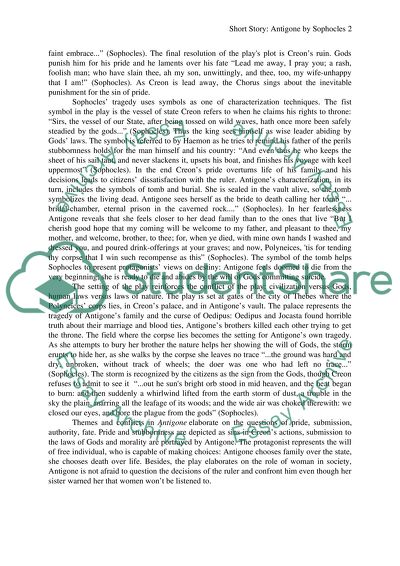Cite this document
(Antigone by Sophocles Book Report/Review Example | Topics and Well Written Essays - 1250 words, n.d.)
Antigone by Sophocles Book Report/Review Example | Topics and Well Written Essays - 1250 words. https://studentshare.org/literature/1609784-short-story-antigone-by-sophocles
Antigone by Sophocles Book Report/Review Example | Topics and Well Written Essays - 1250 words. https://studentshare.org/literature/1609784-short-story-antigone-by-sophocles
(Antigone by Sophocles Book Report/Review Example | Topics and Well Written Essays - 1250 Words)
Antigone by Sophocles Book Report/Review Example | Topics and Well Written Essays - 1250 Words. https://studentshare.org/literature/1609784-short-story-antigone-by-sophocles.
Antigone by Sophocles Book Report/Review Example | Topics and Well Written Essays - 1250 Words. https://studentshare.org/literature/1609784-short-story-antigone-by-sophocles.
“Antigone by Sophocles Book Report/Review Example | Topics and Well Written Essays - 1250 Words”. https://studentshare.org/literature/1609784-short-story-antigone-by-sophocles.


